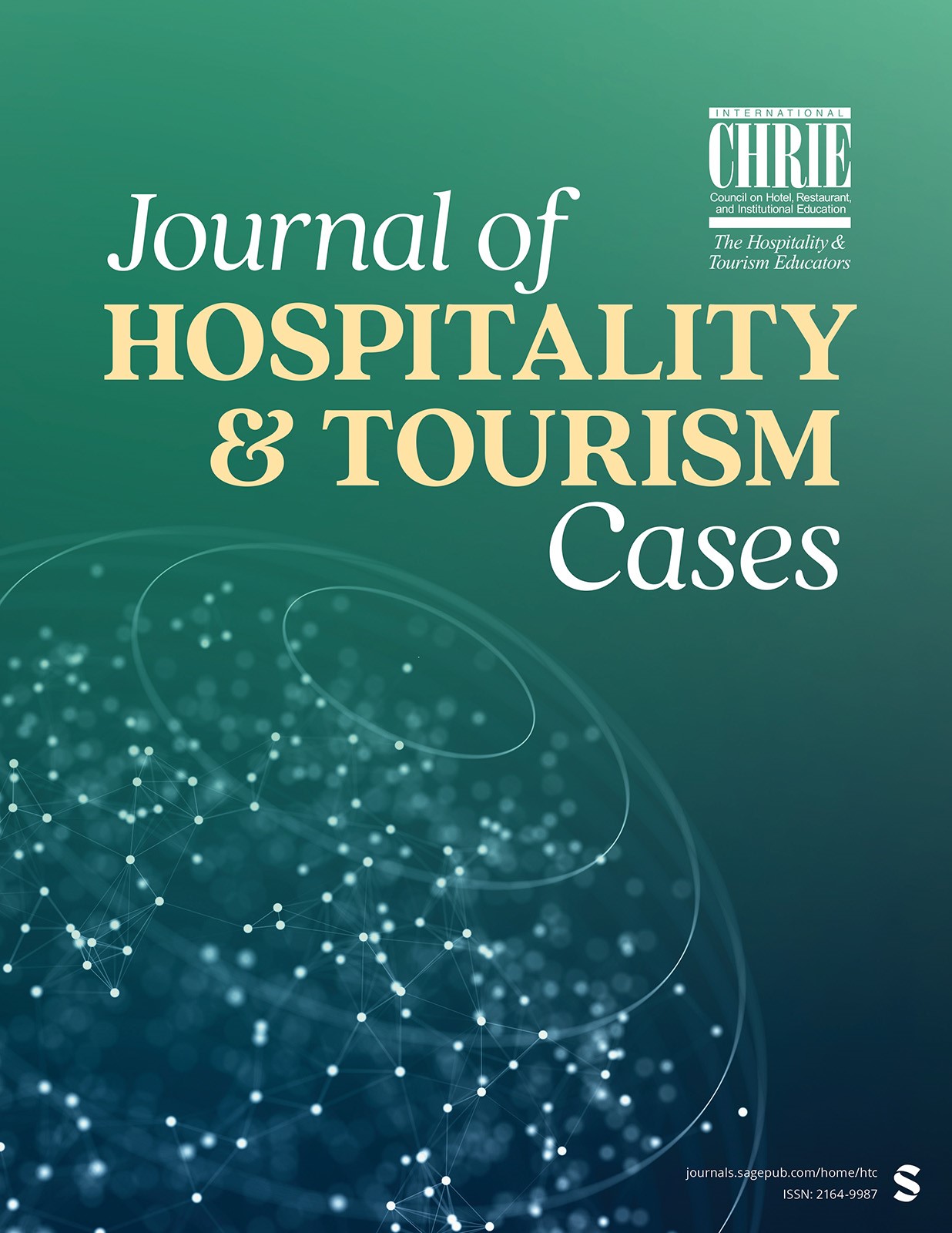Journal of Hospitality & Tourism Cases (JHTC)
An International Case Journal

The Journal of Hospitality & Tourism Cases (JHTC) is an international refereed electronic journal (e-journal) published by ICHRIE. The mission of JHTC is to distribute quality case studies to academics and professionals interested in using the case study method as a teaching, research and/or management tool.
Aims & Scope
Case studies provide innovative ideas, business (best or failure) practices, professional dilemmas, and lessons learned from the tourism and hospitality reality. Hence, JHTC is an invaluable source of knowledge and a wonderful teaching tool to the tourism and hospitality academics, researcher, advanced students, and professionals alike.
Overall, the Journal of Hospitality & Tourism Cases (JHTC) is the first peer-reviewed journal in tourism and hospitality that aims to act as:
- a clearinghouse providing educators with valuable case studies to enrich their educational and instruction methods;
- an internationally recognized publication outlet offering researchers the opportunity to publish their research work;
- a new added-value service of ICHRIE to its members;
- an additional important contribution of ICHRIE to tourism & hospitality education and research;
- a purely hypothetical and fictional case studies are strongly discouraged.
The Journal of Hospitality & Tourism Cases is published annually since 2011. Each annual volume of the journal features up to four (4) issues, including case studies and their teaching notes that represent a wide variety of business topics/problems, disciplinary areas and various types of organizations from the travel, tourism, and hospitality sectors.
Topics of Case Studies
The case studies may focus on any topic and subject area (e.g. operations, information technology, marketing, sustainability etc.) related to the tourism & hospitality education and industry. Case studies published in JHTC may address a wide variety of tourism and hospitality organizations such as businesses, government organizations, destination organisations, educational institutions, non-profit organizations.
- Case studies may be compiled from field research, published sources and/or generalized experience. Case studies drawing from field research should also obtain and submit a publication permission from an appropriate representative of the organisation referenced in the case study. Please read more information about the publication permission form in the section discussing the submission guidelines of JHTC.
- Case studies may be designed to illustrate a specific point, business problem, research idea or to facilitate student mastery of concepts. Case studies published in JHTC may report not only successful practices, but also failures and mismanagement practices. Consequently, it is not required that all aspects of each case study are novel, but the case studies should clearly identify their impact in teaching and/or research and should lead the reader to a point at which some decision, series of strategies or research streams must be developed. In this vein, it is also suggested that case studies use writing styles and approaches that can make them useful and appropriate as a teaching or research tool. For example, case studies may also be presented in narrative style or in dialogue, should the latter can attract and hold the students’ or readers’ attention.
- All case studies must be accompanied by a Teaching Note, which is also peer reviewed.
New in Journal of Hospitality and Tourism Cases: Classroom Games
Have you developed an engaging classroom activity that students enjoy while achieving their learning outcomes? Would you like to receive academic recognition by publishing your work? JHTC now offers you the opportunity to do so.
In November 2024, we introduced a new submission type called Classroom Games. The idea is to extend our scope from traditional teaching cases to include other learning activities. A classroom game should be a significant activity that students prepare for and that may also lead to an evaluation. It must include elements of gamification but also link to the theoretical knowledge that the students are expected to learn through the activity. Submission guidelines are available on the JHTC website (https://journals.sagepub.com/author-instructions/HTC), but if you have further questions on this new type of publication opportunity, please don’t hesitate to contact us.
We look forward to your Classroom Games submissions!
Henri Kuokkanen, Ph.D., Institut Lyfe, [email protected]
H.G. Parsa, Ph.D., University of Denver, [email protected]
Meet the JHTC Editors
Executive Editors:
 
Associate Editors:
  
Journal of Hospitality & Tourism Cases Award Winners, presented in June 2025
JHTC Outstanding Reviewer of the Year
Elena Cavagnaro & Dr. Lisa N Cain
2025 ICHRIE Journal of Hospitality and Tourism Case Competition
Awards sponsored by Johnson & Wales University
First Place: AI-driven recruitment in hospitality: Balancing efficiency and human touch
Burcin Turkkan Zencirli, M.B.A. and Cynthia Mejia
Second Place: Conservation and tourism: A study of dinosaur ridge
Taryn Claassen and Cynthia S. Deale
Third Place: Avoiding retention issues due to policies in the HR hospitality industry
Sarala Morrow and Eric Brown, Ph.D.
Honorable Mention: Brewing a new beginning: Leadership transitions and strategic challenges at Starbucks
Dr. Yue Teng Vaughan, Dr. Vijaya L. Zinnoury, Ruoyan Wang and Cynthia (Cindy) Lerick
Would you like to know when a new JHTC article is published by International CHRIE through Sage Publications?
Click the button below to get email alerts sent right to your inbox!

|